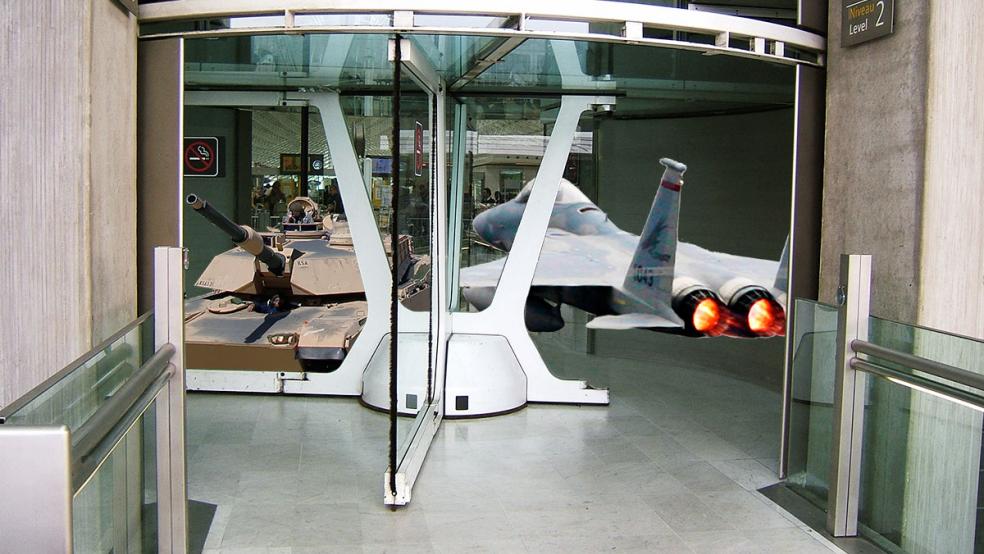Senior Pentagon personnel are finding employment in the defense industry, often times to work on the types of contracts they oversaw as government employees. And the Defense Department has barely raised an eyebrow.
Making the leap from Capitol Hill or the White House to K Street did raise eyebrows when a January 2014 Sunlight Foundation report revealed a 422 percent growth in lobbyist revenue tied to lobbyists with previous government experience. Those dollars are usually provided by private industry or public unions. But when military big wigs go through that revolving, they may be taking your tax dollars with them.
Senior personnel are required to seek an ethics opinion from the Pentagon before making a move to the military contracting world, and defense contractors are responsible for ensuring the potential employee has received the opinion. The Pentagon is also required to house the opinions in a central database, accessible to the public, for five years.
Related: Holder and Mueller Spent $7.8 Million on Personal Travel
The Defense Department’s Office of Inspector General said in a report this week that the system has been plagued by poor record-keeping with inaccessible files. The shortcomings show a failure to comply with a provision in a 2008 law that came about after concern that former military personnel were helping defense firms devise and execute contracts that aren’t always in the best of interest of taxpayer dollars.
“Members of Congress, Administration officials, various independent public policy research organizations, and the media have periodically raised concern that some former government officials, who left positions of significant contracting responsibility in the Government and subsequently worked for government contractors, may have improperly influenced the Government from their government contractor positions,” the Office of Inspector General wrote in its report.
The inspector concluded that the flawed database “was of marginal value as a management control system, and that DOD may not have fully complied with the intent of the law.”
Melanie Sloan, executive director of Citizens for Responsibility and Ethics in Washington, said that while a lot of people think of congressional and White House staffers cashing out for bigger salaries at firms or associations that lobby their former employers, the same conflict of interest happens with regularity at the federal agency level.
Related: Spies Like Us: The NSA Is Intrusive and Incompetent
“It’s a well-traversed avenue,” Sloan said, adding that the Pentagon and defense contracting industry “has one of the fastest spinning revolving doors.”
CREW sued the Pentagon for data pertaining to implementation of the 2008 law. The resulting documents showed that during a 15-month period ending last year, 379 defense officials sought ethics opinions for potential employment at places Lockheed Martin, Northrop Grumman and General Dynamics.
The Pentagon spends about $100 billion a year on procurement contracts.
Related: DOD Is Stuck with a Flawed $1.5 Trillion Fighter Jet
While many companies in the private sector require employees to sign non-disclosure agreements regarding trade secrets and firm practices, the same rules don’t apply to many outgoing Pentagon personnel.
“Those things are tricky to legislate,” Sloan said, noting that there are already some ethics guidelines in place. She said she doesn’t see any changes on the horizon.
“Periodically the revolving door does gain traction in Congress when Americans are outraged,” Sloan said. “You get a couple of scandals” and then the public demands legislation, she said.
Top Reads from The Fiscal Times:





